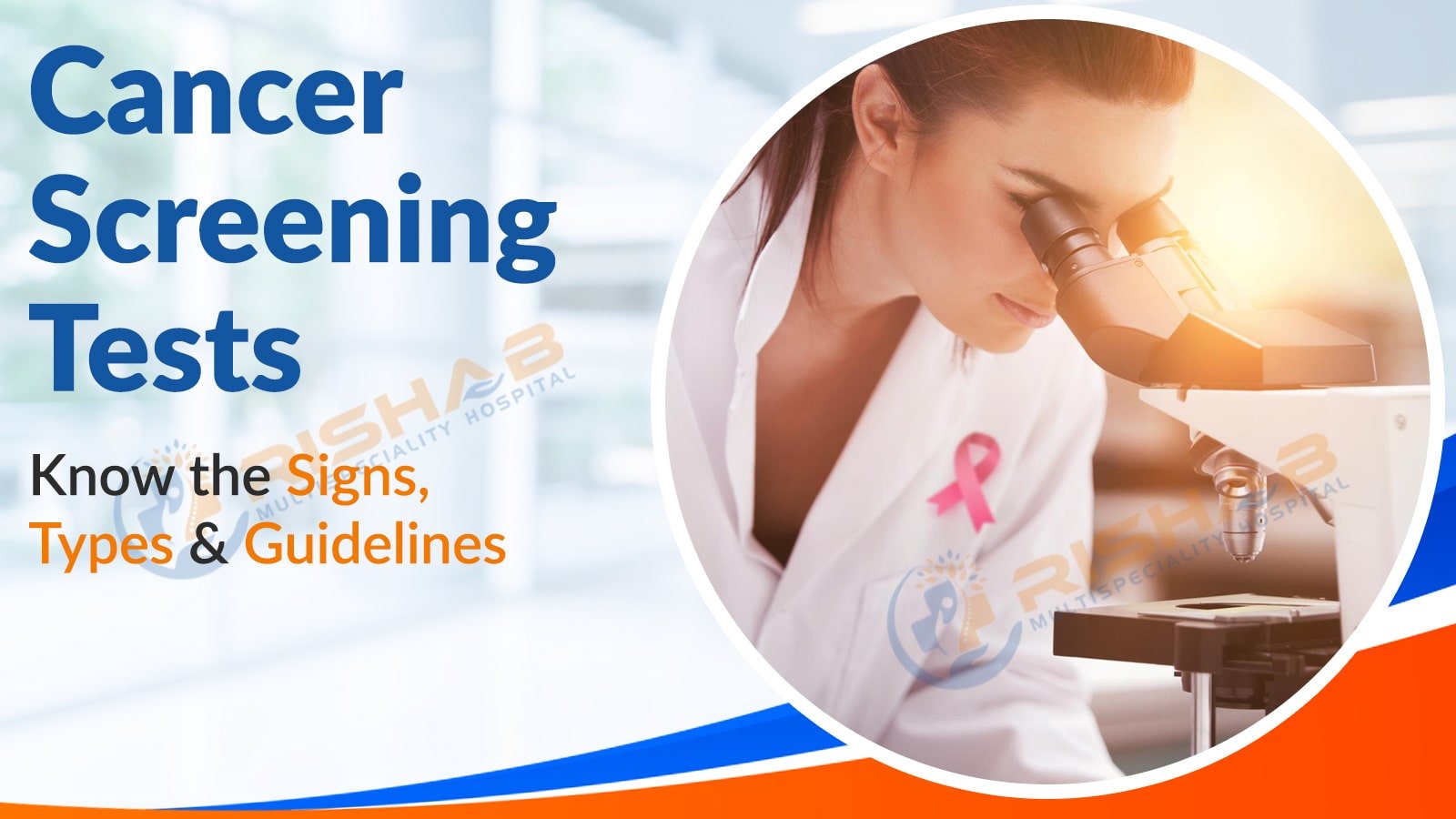

Cancer is one of those diseases that kill practically on a global scale. There are several cancers-to puzzling out-all of which, when caught early, can be cured or at least successfully controlled. Hence, the screening of cancer played a crucial role. By screening, cancer or pre-cancerous lesions can be detected before symptoms arise, thereby increasing the level of correlation of treatment and long-term patient survival.
Knowing about cancer screenings allows people to make informed decisions regarding their health. Here we will discuss cancer screening, types of screening tests available, who should be screened, and the time periods involved for screening. We will also discuss the guidelines for screening for select cancers, the advantages of screening, and the importance of risk factors in screening recommendations.
Cancer screening is the procedure of testing apparently healthy persons for evidence of cancer before they exhibit any symptoms. It targets early detection of malignant cells or tumors, ideally at a stage where treatment can work more effectively and be less aggressive.
Screening tests are different from diagnoses. Whereas diagnoses look for the presence of signs and disorders when symptoms appear, screening tests are considered preventive tools used during routine health check-ups to catch problems early.
Screening for cancer cannot be said to have only a handful of benefits. It offers many benefits that can drastically change the chance of the patient.
Different screening guidelines are based on specific factors, and individual screening frequency is dictated by age, medical history, family history and personal habits. As a guide, you should be looking for screening if you fall into the following categories:
Cancer screening tests cover a whole spectrum of tests, depending on the cancer of concern. Common methods of screening include:
You can read also:- Silent Heart Attack: Causes Symptoms and Treatment
Understanding personal risk factors is the most important piece of cancer screening. Risk factors decide when you would begin screening, which tests you need, and how often you are screened. Some of the more significant risk factors include:
In brief, we list the standard screening recommendations for:
Breast Cancer
Cervical Cancer
Colorectal Cancer:
Lung Cancer:
Prostate Cancer:
Skin Cancer:
Ovarian Cancer:
Liver Cancer:
At Rishabh Hospital Jaipur, we have a deep commitment toward early diagnosis and prevention of cancer through complete and personalized screening programs. In our view, an early screening for cancer is not merely some protocol; rather, it is a life-saving step toward a bright future.
Our team of competent oncologists and preventive health experts utilizes diagnostic machinery considered among the modern technologies while the professionals follow up with contemporary national and international screening guidelines to provide every individual with accurate diagnosis and treatment, effective and compassionate, language included. So, whether you are at average risk, or you've got some health concerns plaguing your mind, we will lead you to the right screening options according to your age, risk profile, and medical history.
Do not wait for symptoms to appear; take charge of your health! Rishabh Hospital, Jaipur, welcomes you for expert consultations and world-class screening services that take care of you.
Assuming we go together, we will fight cancer by spreading awareness, screening it early, and timely intervention.
1. What are cancer screening tests for?
Ans. To detect cancer or precancerous conditions before the symptoms appear so that they have a greater chance of cure.
2.When should I start screening for cancer?
Ans. It depends on the type of cancer, for example: breast age 40+; cervical 21+; colorectal 45+; with earlier screening if at high risk.
3. How often does one need to undergo a screening test?
Ans. The frequency depends on the kind of screening, age, and kind of risk. Some are done yearly, some every couple.
4. Are screening tests painless or risky?
Ans. The tests are mostly harmless and moderately invasive. Serious side effects are very few.
5. Is it possible to prevent cancer with screening?
Ans. No, screening detects changes that can lead to the early stopping of cancer development or its spreading.


At Rishab Multispeciality Hospital, our primary focus is on delivering unparalleled multidisciplinary care to our patients. We are committed to leveraging state-of-the-art technology and harnessing expertise to ensure the highest standards of healthcare.
Rishab Hospital Choraha, Vishwa Vidhyalaya Nagar, Jagatpura, Jaipur, Rajasthan 302017